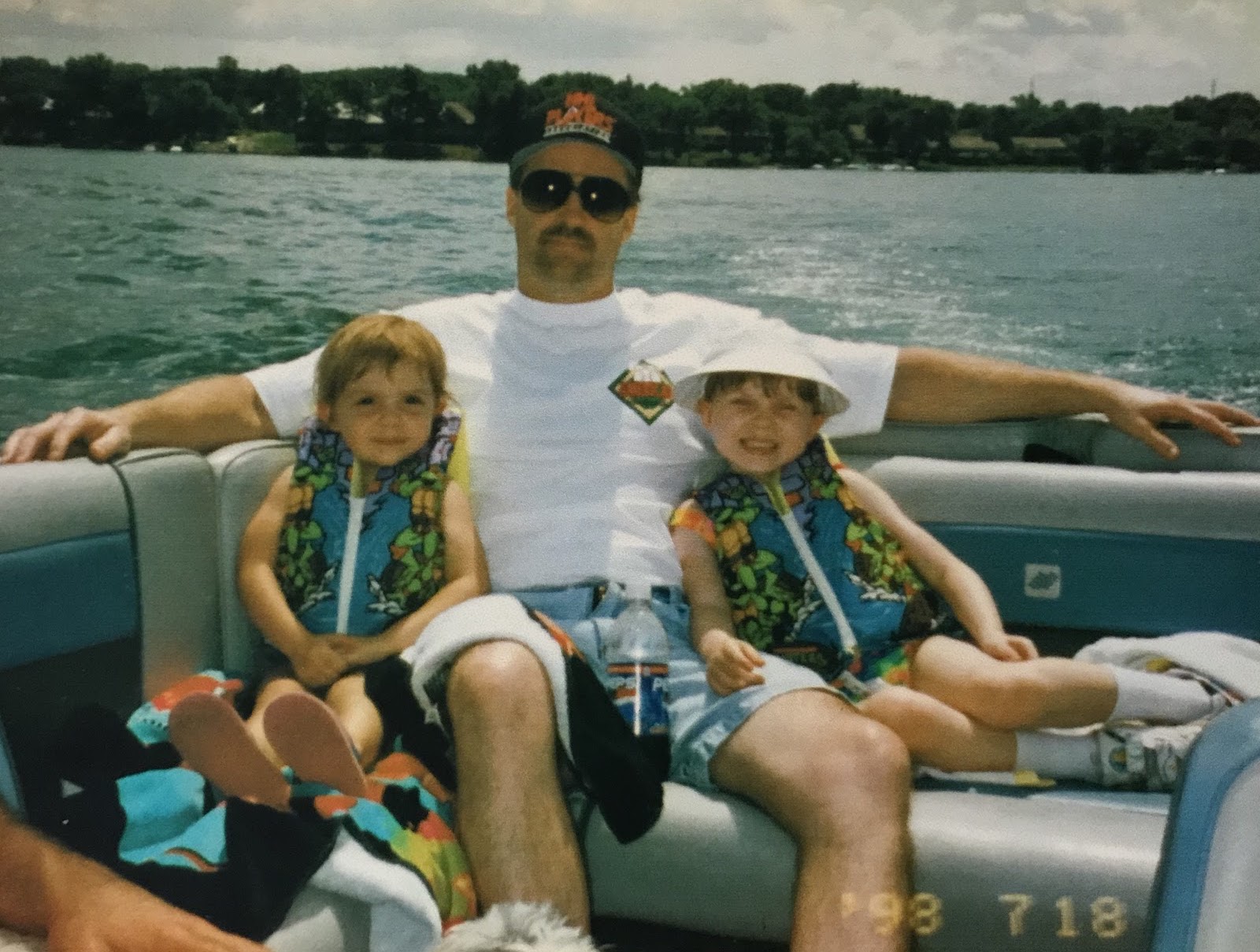From canoeing to campaigning: how I became a clean energy advocate
I have spent much of my life around the water. Many of my best childhood memories are closely tied to the lakes around my house in Michigan. I grew up in West Bloomfield Township, which is known for its many lakes, where I spent hours and hours each summer canoeing with my friends. My collection of memorable moments grew during my time at Kalamazoo College.

I have spent much of my life around the water. Many of my best childhood memories are closely tied to the lakes around my house in Michigan. I grew up in West Bloomfield Township, which is known for its many lakes, where I spent hours and hours each summer canoeing with my friends. My collection of memorable moments grew during my time at Kalamazoo College. I remember perfect beach days in May, when the school would cancel classes and bus students to South Haven, a beautiful town on Lake Michigan. And I remember quick escapes for a dip in between two-a-day soccer practices during preseason camp. I spent many hours swimming and floating in Lake Michigan thinking to myself that this was a place I never wanted to leave.
It didn’t cross my mind to question whether or not anyone was protecting Lake Michigan or similar beautiful places across the country from pollution. That began to change as I learned about the Enbridge oil spill in the Kalamazoo River.
In July 2010, Line 6B of the Enbridge Energy pipeline ruptured, resulting in one of the largest inland oil spills in U.S. history. The spill went on for 17 straight hours, dumping close to one million gallons of tar sands oil into a tributary of the Kalamazoo River. It took more than four years to clean up most of the 35 miles of contaminated river. Unfortunately, some of the oil permanently damaged parts of the river because it is difficult to remove. For years, when you would go canoeing in the river, if you stuck your paddle to the bottom, small bubbles of oil would float up.
Even though I grew up only about 100 miles from the site of the spill, I hadn’t heard much about it until I went to college. Both the destruction caused by the spill and the fact that it hadn’t received a lot of national news coverage were shocking to me. The Enbridge spill made me realize that the special places that make our country so beautiful and unique are constantly at risk of being devastated by dangerous fossil fuel infrastructure. As I saw it, the lack of repercussions for Enbridge over the following years highlighted the fact that time and time again, special interests of powerful industries are privileged over those of the public and the environment.
(I would be remiss if at this point I didn’t mention that Enbridge operates another pipeline, Line 5, that runs along the bottom of the Straits of Mackinac connecting Lake Michigan and Lake Huron. Reports have said that it is not a matter of if this pipeline will spill, but when. You can sign a petition here in support of shutting down Line 5.)
During my time at Kalamazoo College, while learning about this local environmental tragedy, I first got involved in activism. I organized student and faculty support on my campus to address climate change and divest our endowment from fossil fuels. I also worked on a congressional campaign to unseat one of the congressmen most heavily funded by the oil and gas industry. That experience gave me an up-close and personal look at how special interests influence our environmental policies.
Since starting on staff with Environment America in 2015, I’ve worked on campaigns in support of clean energy across the country, including historic commitments to using offshore wind power by the states of Massachusetts and New York; commitments to transitioning to 100 percent renewable energy from colleges and universities, including Cornell University, Vanderbilt University and the University of California system; and extending federal renewable energy tax incentives.
As a millennial, I am part of the generation that will be most affected by climate change. But my generation also recognizes that our fossil fuel usage doesn’t just exacerbate climate change. It is causing mass extinctions, pollution that contributes to numerous public health problems and environmental risks every single day. When I come to work, I get the opportunity to put in motion tangible commitments to a renewable energy transition that will protect some of the places that I love most, including Lake Michigan and the rest of our Great Lakes, along with countless other beautiful places across the country that people hold just as near and dear.


